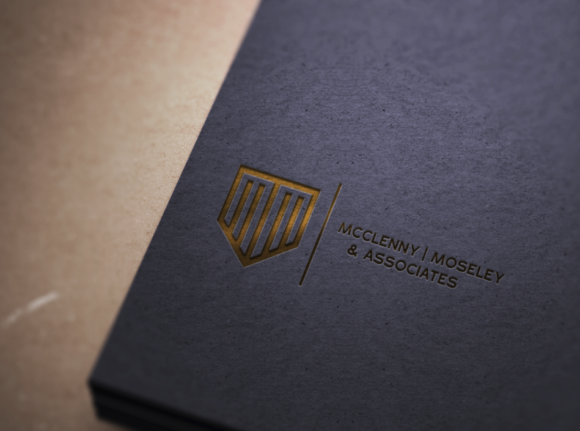Former attorneys for McClenny Moseley & Associates hope to persuade a federal judge to lift a suspension that prevents them from practicing in the Western District of Louisiana, including one young lawyer who says he had been practicing law less than a year before the managing partner of MMA’s New Orleans office persuaded him to accept a job negotiating settlements with insurers.
“To the extent that my actions may have affected any clients of MMA, I have great remorse, just as I have incredible remorse for taking a job with MMA in the first place,” Grant P. Gardiner says in a sworn affidavit submitted to the court June 21 and recently unsealed.

Gardiner’s statement and a letter from MMA founding partner James McClenny provide new details about happenings behind the scenes in the months before the law firm filed more than 1,600 lawsuits over the course of several days in August 2022, many of them on behalf of property owners whom they did not represent.
District Court Judge James D. Cain Jr. has scheduled an Aug. 8 hearing at the federal courthouse in Lake Charles to consider pleadings by Gardiner, McClenny, founding partner J. Zachary Moseley and former MMA attorneys Claude F. Reynaud III and Cameron Snowden. The court on March 3 barred each of the attorneys, along with New Orleans managing partner R. William Huye III, from practicing law in the district for 90 days and on June 8 extended that suspension for an additional six months.
The Louisiana State Bar has also suspended Huye’s law license indefinitely while it investigates his actions. Huye did not request reconsideration of the District Court’s suspension.
Gardiner said during an interview with Claims Journal that he is trying to salvage his reputation and protect his professional future. He says he has spent $15,000 on legal bills so far, but filed the affidavit explaining his experience with MMA on his own.
“I am trying to have my own voice as much as possible,” he said. “This is my story and I want to tell it.”
Gardiner said he and Huye once worked together at Pandit Law, where Gardiner had started as a clerk while still attending Loyola University School of Law. He was admitted to the Louisiana State Bar in October 2021.
Huye left Pandit Law to open a New Orleans office for Houston-based MMA and asked Gardiner to come work for him. Gardiner said initially he declined because he was wary about taking a position with a startup.
Huye offered to hire Gardiner again after Hurricane Ida ripped through Louisiana. Huye told him the law firm’s marketing campaign had brought on 10,000 new clients. Gardiner said he was 10 years old when Hurricane Katrina dumped 10 feet of water on his New Orleans neighborhood and he relished an opportunity to work on hurricane damage claims.
Gardiner said he and other attorneys at MMA were kept in separate silos. He said the law firm operated like an assembly line. One lawyer worked on mediations and another on damage estimates. His job was limited to negotiating settlements with insurers and preparing for mediations.
Gardiner went to work for MMA on July 18, 2022, according to his affidavit. A month later, the statutory deadline for filing Hurricane Laura claims was approaching when Huye asked him and two other attorneys for permission to use the internet accounts that give them access to the federal court system — known by the acronym PACER — to file lawsuits on behalf of hurricane victims. He said in that way his name became attached to one quarter of the hurricane damage lawsuits filed by MMA.
Gardiner said Huye told him he had intended limit the number of lawsuits filed by using a permissive joinder to file one lawsuit against each insurer that owed for damages, naming all if the affected policyholders as plaintiffs. He said Huye asked to use his colleague’s PACER accounts after federal courts rejected that approach.
Gardiner said he was unaware at the time that MMA had used a restoration contractor and a marketing company called Velawcity to sign up clients. He said he learned about the scheme only after a federal judge confronted Huye about the mass filings. Until then, he said he had no idea that MMA had made misrepresentations about who it represented.
He said he has paid dearly for allowing MMA to file lawsuits in his name.
“In his personal life, Mr. Gardiner has on countless occasions had to explain his situation and his involvement (or lack thereof) to friends, family, acquaintances, colleagues, and opposing counsel,” he said in a formal request for relief filed with the court on June 21. “Mr. Gardiner’s wife (an elementary school teacher) has also been forced to endure questioning from friends, family, acquaintances, and coworkers.”
McClenny also sent a letter to the court on June 15. He said he has started a new law firm that practices solely in Texas and has limited knowledge of of the “current situation” in Louisiana because he has “completely distanced” himself from the law firm.
“I made a difficult but needed decision in December to depart the firm and retain no interest in its docket or future earnings,” McClenny’s letter says. “I left with nothing.”
US District Court Terry A. Doughty, the chief judge for the Western District of Louisiana, announced on July 7 that he has scheduled an Aug. 8 hearing before Judge Cain to consider the suspensions of MMA attorneys. Doughty also ordered each of the attorneys to provide any information they have on client trust accounts.
Specifically, Doughty asked the law firm to list all storm damage clients whose funds were deposited, a full listing of funds distributed, a full listing of uncashed settlement checks and an explanation about the status of settlement funds for nine specific clients.
The judge did not explain why he wanted information about those particular clients.
Insurance defense attorney Matthew Monson, whose investigation of MMA’s tactics led to the judicial inquiry, noted the order on his LinkedIn page Wednesday.
“Thanks to Judge Doughty for this order to get to the bottom of the most important question, ‘What did MMA do with the money?'” he said.
Was this article valuable?
Here are more articles you may enjoy.


 Gas-Guzzler Revival Risks Dead-End Future for US Automakers
Gas-Guzzler Revival Risks Dead-End Future for US Automakers  Walmart to Pay $100 Million to Settle FTC Case on Driver Wages
Walmart to Pay $100 Million to Settle FTC Case on Driver Wages  AIG’s Zaffino: Outcomes From AI Use Went From ‘Aspirational’ to ‘Beyond Expectations’
AIG’s Zaffino: Outcomes From AI Use Went From ‘Aspirational’ to ‘Beyond Expectations’  Claims Handling Breakdowns From LA Wildfires One Year on
Claims Handling Breakdowns From LA Wildfires One Year on 